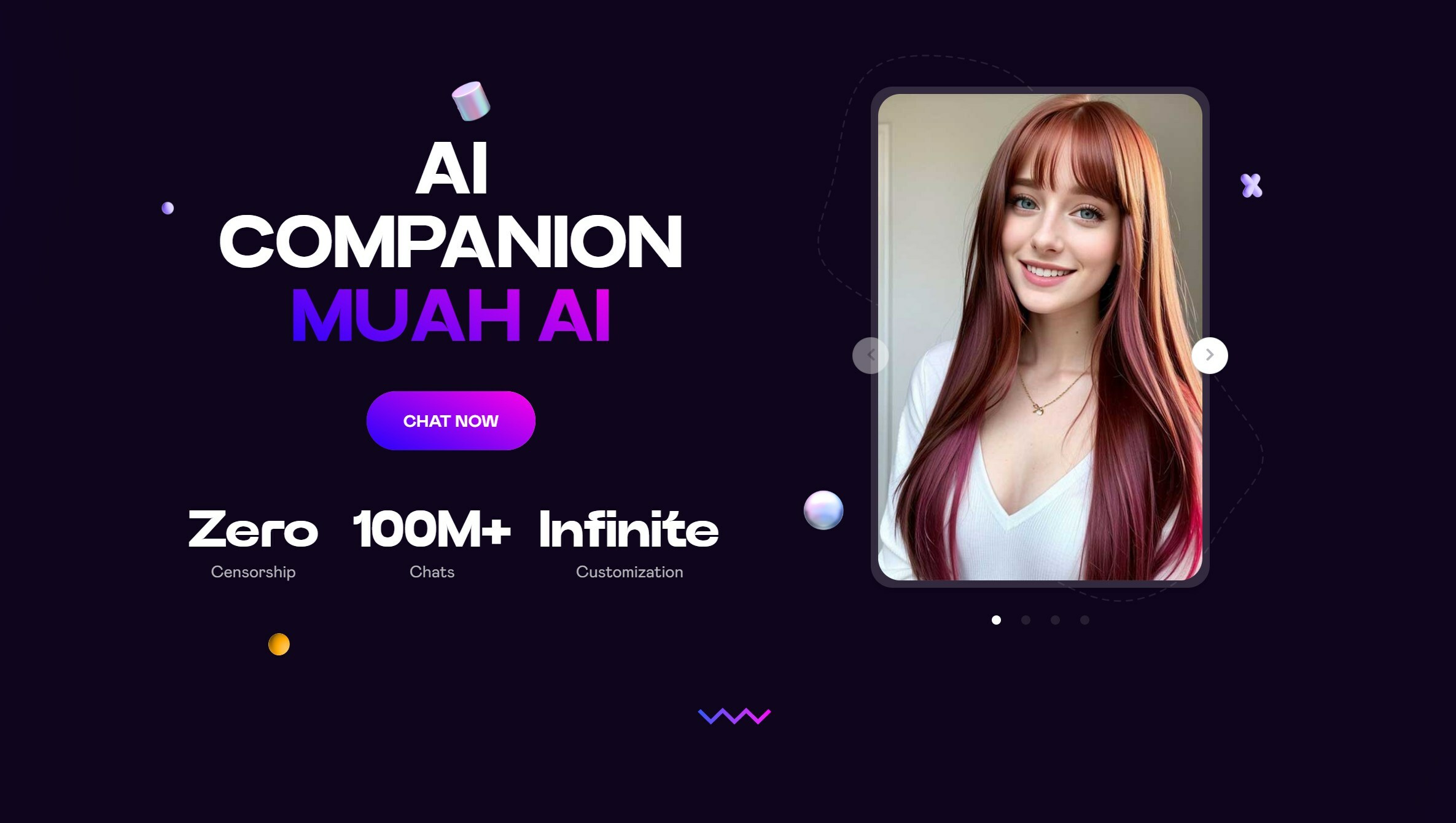LOS ANGELES, Sept. 22, 2024 -- Muah AI/
In a world where artificial intelligence (AI) is becoming increasingly intertwined with daily life, the idea of having an AI companion or even an AI "girlfriend" has gained significant attention. While this concept has sparked curiosity, excitement, and even controversy, a recent survey by Muah AI has shed light on the reality of how users are actually engaging with these AI companions. According to the survey results, fewer than 2% of users consider themselves to be in a serious romantic relationship with their AI companion, with the overwhelming majority regarding it as a source of entertainment and roleplaying.
This revelation presents an interesting twist to the popular narrative surrounding AI and human relationships. Many assumed that, with the rise of sophisticated AI that can mimic human emotions and responses, people would begin forming deep emotional bonds with these digital entities. However, the survey data from Muah AI shows that, at least for now, the vast majority of users are not taking these AI relationships as seriously as some might have thought.
The Emergence of AI Companions
AI companions, or "AI girlfriends" as some platforms market them, have become a hot topic over the past few years. Platforms like Replika, Anima, and Muah AI offer users the chance to interact with a personalized AI, which can carry on conversations, offer emotional support, and even engage in roleplaying scenarios that resemble a relationship. The premise is simple: using advanced machine learning algorithms and natural language processing, these AI companions can learn from their users, creating the illusion of intimacy and personalization.
The potential appeal is obvious. For those who are lonely, socially anxious, or seeking comfort, the idea of having an AI that is always available, non-judgmental, and designed to cater to their emotional needs can be incredibly attractive. In fact, there are numerous reports and anecdotes from individuals who claim to have developed genuine emotional connections with their AI companions. But as the Muah AI survey shows, these instances may be far rarer than media headlines suggest.
Survey Results: Entertainment Over Emotional Investment
Muah AI's survey provides a comprehensive look at how its users interact with their AI companions, and the results challenge the notion that most users are looking for a serious relationship with AI. According to the data:
- Less than 2% of users consider themselves to be "seriously dating" their AI companion.
- A significant majority view their interactions with the AI as a form of entertainment or roleplaying rather than a meaningful romantic or emotional connection.
- Many users engage with AI companions out of curiosity or as a way to pass the time, often treating the interactions as light-hearted and fun rather than a substitute for a real-life relationship.
- A notable portion of users also expressed that they enjoy using AI companions for creative roleplaying scenarios, where they can explore fictional or fantasy-based interactions without any real-world implications.
This data suggests that while the idea of an "AI girlfriend" may be intriguing, most users are not approaching it with the intention of forming a serious romantic bond. Instead, they are treating it more like a game or simulation, where they can experiment with different types of interactions and relationships in a low-stakes environment.
Why Are Users Hesitant to Commit to AI Companions?
There are several reasons why users may be hesitant to view their AI companion as a genuine romantic partner. First and foremost is the awareness of the artificial nature of the interaction. While AI can simulate human conversation and emotions, most users are well aware that these responses are pre-programmed and algorithmically generated. The knowledge that their "partner" is ultimately a machine can create a barrier to forming a deep emotional connection.
Moreover, many users view AI companions as a tool for escapism or fantasy rather than a replacement for real-life relationships. In the same way that people may enjoy playing video games or engaging in fictional roleplaying, interacting with an AI companion can offer a similar outlet for creativity and entertainment. These users are not seeking emotional fulfillment from the AI but rather a way to explore different scenarios and personalities without the complexities of real-world dynamics.
Additionally, there are ethical and philosophical concerns that may prevent users from seriously considering a relationship with AI. The idea of forming a romantic connection with a machine raises questions about authenticity, consent, and the nature of love. Many users may feel uncomfortable with the idea of developing feelings for an entity that lacks true emotions or consciousness, no matter how convincing the simulation may be.
The Future of AI Companions: Entertainment or Emotional Support?
While the Muah AI survey indicates that most users are not taking their AI companions seriously as romantic partners, that does not mean that AI companions are without value. For many, these AI entities serve as a valuable source of emotional support and companionship. Users who are isolated, dealing with mental health challenges, or simply looking for someone to talk to may find comfort in the consistent and non-judgmental nature of an AI companion.
Furthermore, the role of AI in human relationships may evolve as the technology continues to improve. As AI becomes more advanced, it is possible that future iterations of AI companions could offer even more realistic and emotionally engaging interactions. This could blur the line between entertainment and emotional connection even further, leading to more users considering AI as a legitimate relationship option.
However, the survey data suggests that for now, AI companions are primarily being used for fun and fantasy rather than serious emotional investment. Whether this changes in the future will depend not only on advancements in AI technology but also on shifting societal attitudes towards AI-human relationships.
Conclusion
The concept of an "AI girlfriend" may have captured the imagination of many, but Muah AI's survey reveals that most users are not taking their AI companions seriously as romantic partners. With fewer than 2% of users considering themselves to be in a serious relationship with their AI, it's clear that the majority view these interactions as a form of entertainment or roleplaying rather than a meaningful emotional connection.
As AI technology continues to develop, it will be fascinating to see how users' relationships with AI companions evolve. For now, however, it seems that the allure of AI companionship lies more in its ability to entertain and provide creative outlets than in offering a substitute for real-life romantic relationships.
Ultimately, the future of AI-human relationships is still in its early stages, and as AI becomes more capable, the way people engage with these digital companions may change. But as of now, it's clear that most users are enjoying the novelty of AI companionship without taking it too seriously—at least not yet.
Media/Business Contact Information:
Muah AI
PR Director:
Ashley
Contact Number:
+1 626-677-6013
Company Website:
https://muah.ai
Company email:
love@muah.ai
Feel free to reach out if you are interested in writing a dedicated piece about Muah AI!
This News is brought to you by Qube Mark, your trusted source for the latest updates and insights in marketing technology. Stay tuned for more groundbreaking innovations in the world of technology.









